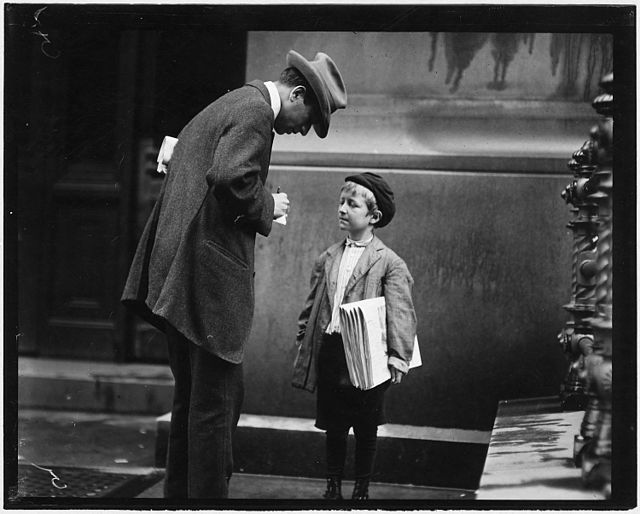Commission on Industrial Relations
The Commission on Industrial Relations was a commission created by the U.S. Congress on August 23, 1912, to scrutinize US labor law. The commission studied work conditions throughout the industrial United States between 1913 and 1915. The final report of the Commission, published in eleven volumes in 1916, contain tens of thousands of pages of testimony from a wide range of witnesses, including Clarence Darrow, Louis Brandeis, Mary Harris "Mother" Jones, Theodore Schroeder, William "Big Bill" Haywood, scores of ordinary workers, and the titans of capitalism, including Daniel Guggenheim, George Walbridge Perkins Sr., Henry Ford, and Andrew Carnegie.
Rubble of the Times building after the bombing
Original members of the Commission on Industrial Relations
United States labor law sets the rights and duties for employees, labor unions, and employers in the US. Labor law's basic aim is to remedy the "inequality of bargaining power" between employees and employers, especially employers "organized in the corporate or other forms of ownership association". Over the 20th century, federal law created minimum social and economic rights, and encouraged state laws to go beyond the minimum to favor employees. The Fair Labor Standards Act of 1938 requires a federal minimum wage, currently $7.25 but higher in 29 states and D.C., and discourages working weeks over 40 hours through time-and-a-half overtime pay. There are no federal laws, and few state laws, requiring paid holidays or paid family leave. The Family and Medical Leave Act of 1993 creates a limited right to 12 weeks of unpaid leave in larger employers. There is no automatic right to an occupational pension beyond federally guaranteed Social Security, but the Employee Retirement Income Security Act of 1974 requires standards of prudent management and good governance if employers agree to provide pensions, health plans or other benefits. The Occupational Safety and Health Act of 1970 requires employees have a safe system of work.

Eleanor Roosevelt believed the Universal Declaration of Human Rights of 1948 "may well become the international Magna Carta of all". Based on the President's call for a Second Bill of Rights in 1944, articles 22–24 elevated rights to "social security", "just and favourable conditions of work", and the "right to rest and leisure" to be as important as the "right to own property".
"Newsboys" in L.A. were held in the leading case, NLRB v. Hearst Publications, Inc., to be employees with labor rights, not independent contractors, on account of their unequal bargaining power.
In September 2015, the California Labor and Workforce Development Agency held that Uber drivers are controlled and sanctioned by the company and are therefore not self-employed.
Employment contracts are subject to minimum rights in state and federal statute, and those created by collective agreements.






